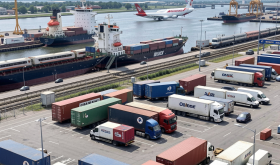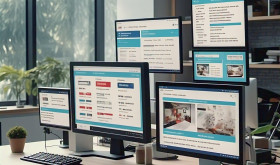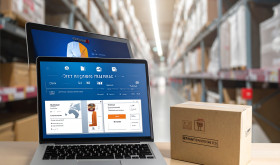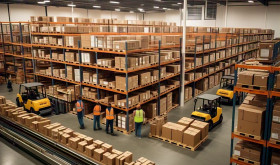
Business owners and operation managers in Indonesia picture this, you yourself handling orders, making your business and operations more productive, and customers always delighted with your products and services. This isn’t just a dream—you can make it happen with the right tools. One of the best tools is an Order Management System (OMS), which makes operations smooth and improves customer service.
What is an Order Management System?
An OMS is a digital tool that keeps track of sales, orders, inventory, and fulfilment. It also has an impact on the people, processes, and partnerships needed to get products to customers. An OMS serves as the core of your operations, bringing together different aspects of business management into one system. Whether you run a small startup or a big company, an OMS makes it easier to enter orders, keep the right amount of stock, process orders, and connect with shipping partners for smooth delivery.
Besides handling orders, an OMS plays a big part in making operations more productive. It connects sales channels with fulfilment plans to make sure products reach customers on time, which makes customers happier and more likely to come back.
How Does an OMS Work?
An OMS brings together data and processes, giving you a clear view and control of orders across all channels in real time. It has an impact on order processing by making it automatic, so every step—from getting an order to sending it out—happens without a hitch. The system updates stock, handles payments, and lets customers know when their order ships all on its own. This cuts down on manual work and mistakes.
The main parts of an OMS include tools to manage stock, a central place to store orders, and ways to keep track of customers. It sets up automatic workflows to check stock, pick and pack items, and work with shipping companies to keep tabs on orders. This automation makes things run smoother and boosts how well everything works.
Why Is an OMS Important?
For Indonesian companies, an OMS plays a vital role to boost operations and keep customers happy. It has an impact on key tasks like order input, handling, and delivery by making them automatic. This cuts down on human mistakes and speeds things up. Quick and correct order delivery keeps customers satisfied, making sure they get what they ordered on time and without errors.
Also, an OMS gives useful insights about your business, helping bosses make choices based on facts. Seeing data in real-time leads to better stock control, stopping too much or too little inventory and allowing for more precise demand planning.
Key Features of an Effective OMS
A good OMS should have various features to simplify all parts of order management. Here are the main things to look for:
- Inventory Control: Keeps track of stock levels across many channels in real-time. This helps to cut down on risks of having too much or too little stock.
- Sales Automation: Makes order entry, checking, and processing automatic. This cuts down on mistakes and lightens the load on staff.
- Document Tracking & Reporting: Gives a bird’s-eye view of operations and key insights to make better choices.
- Accounting Integration: Makes sure money data stays up-to-date and correct for smoother money management.
These features team up to build a system that does not only meet what your business needs but also boosts how well it runs and how happy customers are.
OMS vs. IMS: Getting to Grips with the Difference
Order Management Systems (OMS) and Inventory Management Systems (IMS) play key roles, but they have different jobs. An OMS takes care of orders from start to finish. It covers everything from when a customer places an order to when they pay for it. This system makes sure orders go through without a hitch. It deals with customer care, shipping, and getting orders right.
An IMS, however, keeps an eye on stock. It gives you a clear picture of how much stuff you have how fast it’s moving, and when you need to buy more. Some IMS tools now come with OMS features built in. This gives businesses one big system to handle both stock and orders.
Types of Order Management Systems
You can find many kinds of OMS tools out there. They’re made to fit different business sizes and what each business needs:
- Individual OMS Solutions: These work best for smaller companies. They handle key processes without the extra bells and whistles of bigger systems.
- Enterprise Systems: These are built for big businesses that sell through many channels and deal with lots of orders. They offer a wide range of features.
- Cloud-Based Systems: These can grow with your business, and you can use them from anywhere. They’re great for companies looking to expand or those with teams working.
- On-Premises Systems: These suit companies that want to keep their data in-house, not on outside servers.
When picking an OMS, think about your company’s size, where you want to go, and what you need to run.
How an OMS Can Help Your Business
Using an OMS has an influence on business operations in Indonesia. It makes them more productive and precise. It helps manage stock better, which cuts down on having too much or running out. This saves money and makes the best use of warehouse room. The system’s advanced reports give insights. These allow companies to make smarter choices, plan better, and stay on top of market shifts.
Adding an OMS sets up your business to grow. It lets you stay flexible and keep up in a fast-changing market.
Y3 Order Management System Ups Your Productivity
Y3 Order Management System (OMS) provides a complete, all-in-one solution for companies in Indonesia. Y3 OMS stands out because it works with any Inventory Management System (IMS) giving you up-to-the-minute insights and oversight. Here’s why Y3 is different:
- Combined Order & Inventory Management: Brings together order and inventory management to give you full control.
- Quick Order Handling: Takes care of orders from start to finish, cutting down mistakes and making things run smoother.
- In-depth Analytics & Reports: Gives you strong tools to look at how your business is doing and make choices based on facts.
- Scalability & Accessibility: A cloud platform supports Y3 OMS giving businesses room to grow and adapt as needed.
Y3 OMS helps businesses run, keep track of stock better, and make customers happier, setting them up to do well in Indonesia’s market.
Conclusion
To excel in Indonesia’s competitive business scene, companies need an Order Management System. Y3 OMS offers a custom, all-in-one answer that boosts how well a company works, keeps customers happy, and helps businesses thrive over time.










